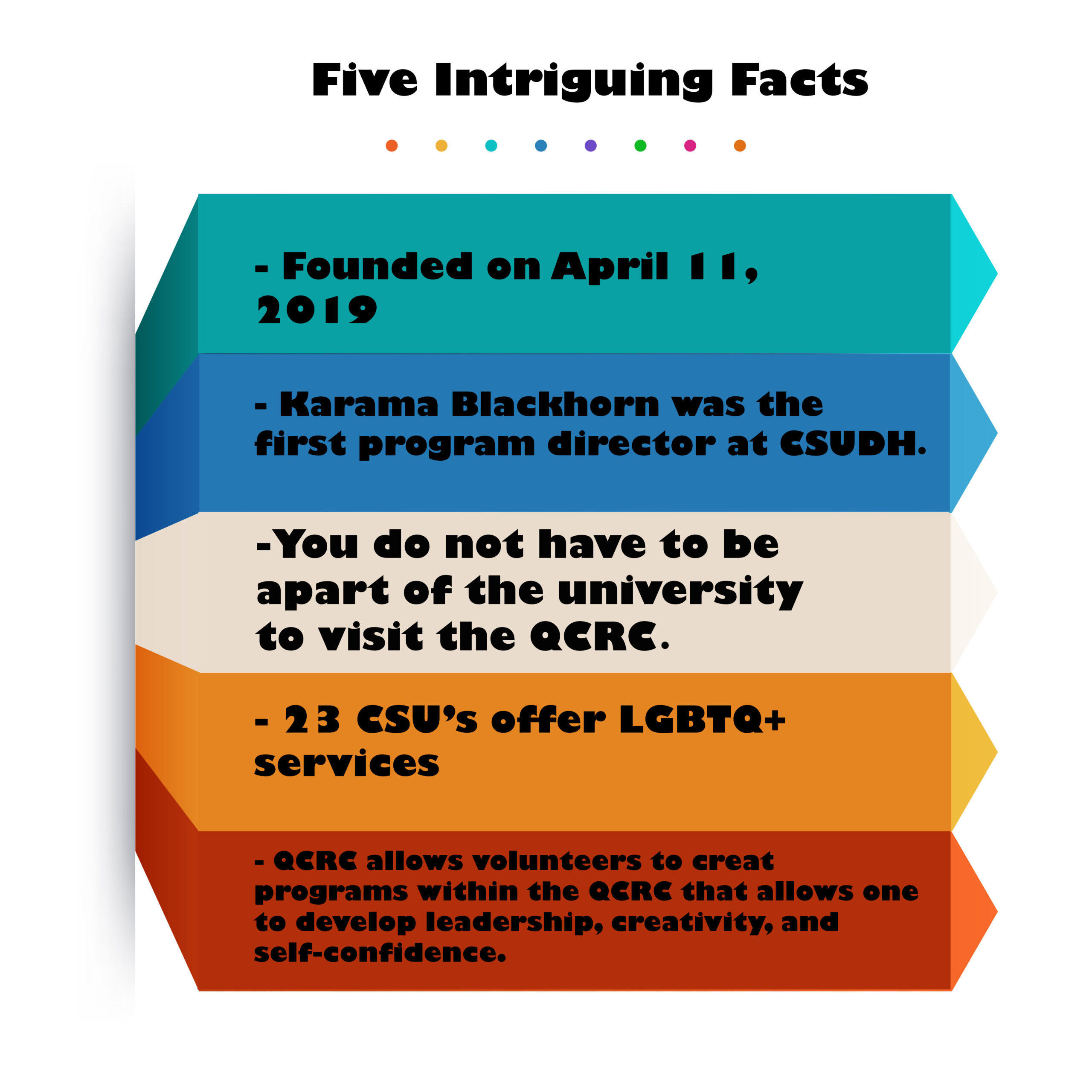By Benny Morales, Staff Reporter
Like every student affinity center at California State University, Dominguez Hills, the Queer Culture & Resource Center (QCRC) has dealt with the challenge of not having a physical space on campus available for those who may need its services this past year. But compounding that challenge is that the QCRC also is dealing with no program director.
Even with these challenges, this resource group focuses on improving the culture of the LGBTQ+ community through online events.
Events have been held all throughout quarantine virtually through Discord, Zoom, and Twitch, allowing members to join a space where they feel welcomed and supported even in an online setting.
“Because of the pandemic, it has become quite clear that this outlet is needed more than ever. So by having weekly social talk groups virtually, we discuss anything that occurs in the LGBTQ+ community which can vary from assistance in coming out, bi-phobia, and other struggles,” said Megan Tagle Adams, the QCRC’s interim lead.
Launched in April 2019, the QCRC was CSUDH’s second affinity center, joining the Rose Black Resource Center. This semester, the Latinx Resource Center virtually opened and an Asian and Pacific Islander (API) center is expected to open in the 2021-22 academic year.
Even before its official opening, the QCRC was led by Karama Blackhorn, who was named program coordinator in August 2018. Blackhorn had more than 10 years of experience working as an advocate and adviser for multicultural and LGBTQ students, mostly at her alma mater, Evergreen College in Washington.

Blackhorn applied that experience to helping design and create the QCRC, including producing more than 115 cultural events in the first nine months of the center’s existence, according to her LinkedIn account.
The fairly new resource center was established on April 11, 2019 and the growth of the center has been steady. This center continues to focus on various aspects involving queer struggles, questions, and advice. It was developed to improve the culture of the LGBTQ+ community at CSUDH and build connections and relationships with other LGBTQ programs.
Karama Blackhorn, the former program director, had to leave due to other exponential job offerings that could not be passed up. Blackhorns loss was unfortunate because she helped make the QCRC what it is today, by planning events, coordinating gatherings, and bringing together a community that has not gotten much recognition.
“You know it was a huge loss. Everyone loved her and she had a great bond with the students, and it was just before the semester started in August,” Adams said.
Since Blackhorn left, Adams has been volunteering as the QCRC’s interim lead even though she already has plenty to handle with being the program director of the Women’s Resource Center.
Currently, the university is looking for a new program director and Adams said she is hopeful that the new director will be announced by the end of spring 2021.
Adams said weekly discussions through Zoom and Instagram have helped them stay connected the most. “Staying connected is one of the QCRC’s main focuses due to people being stuck in living conditions where families may not be supportive, making one feel uncomfortable in their home space,” Adams said.
Because of social distancing, the QCRC was faced with the hassle much like everyone one else in the world, to move remotely online. Despite being online, this has not stopped the association from helping one another during everyday life complications. The center stays connected and offers support through social media such as Slack, Instagram, Zoom, Discord, and Twitch.
For any questions or if you need to talk to someone, contact the QCRC at (310) 243-3818 here or their Instagram. One of the biggest emphasis of the QCRC is that the center is not just for queers, but for all.
